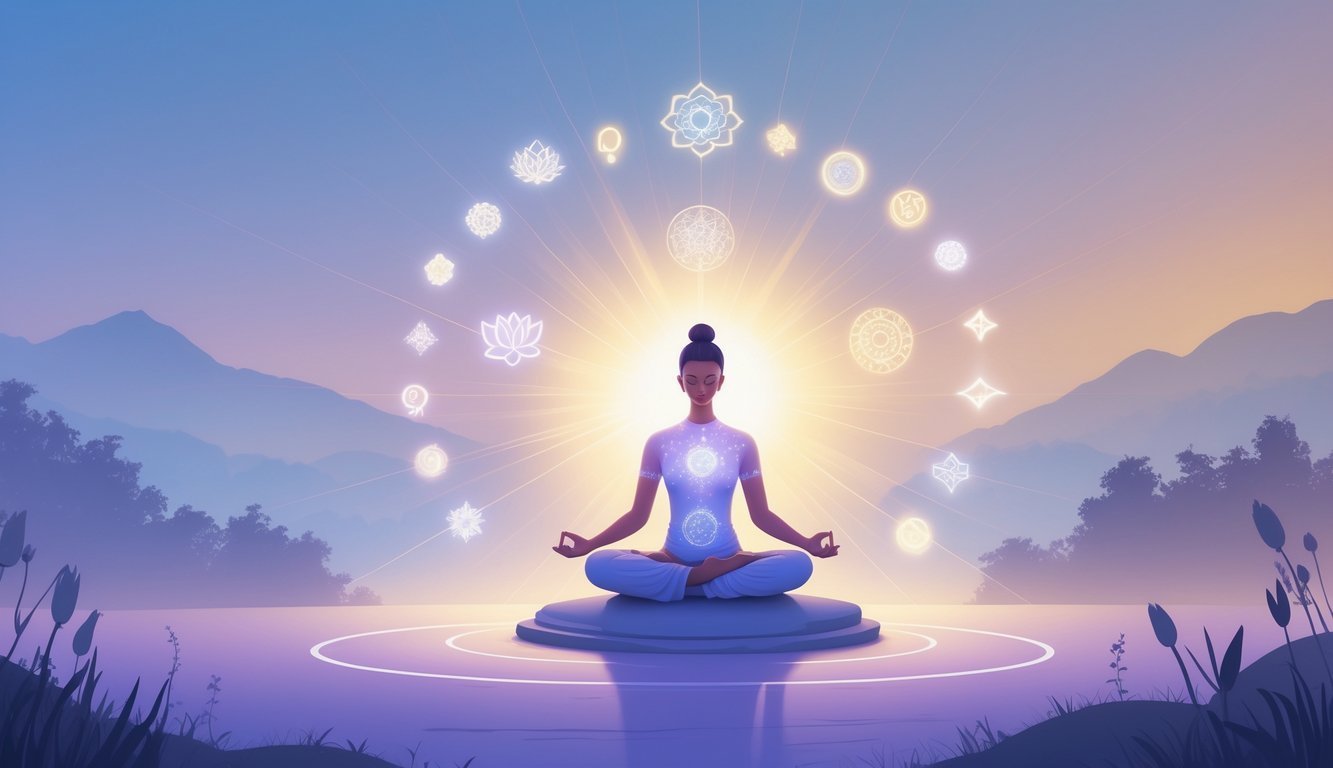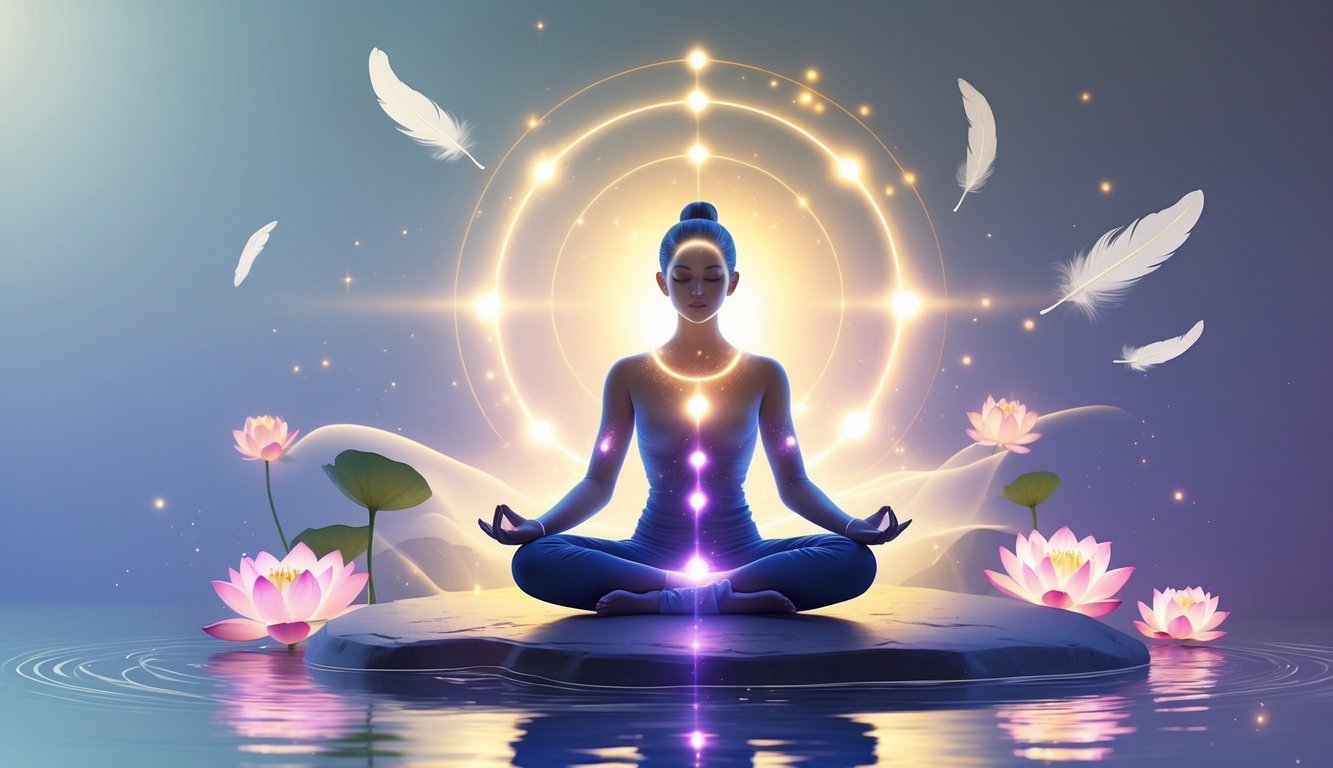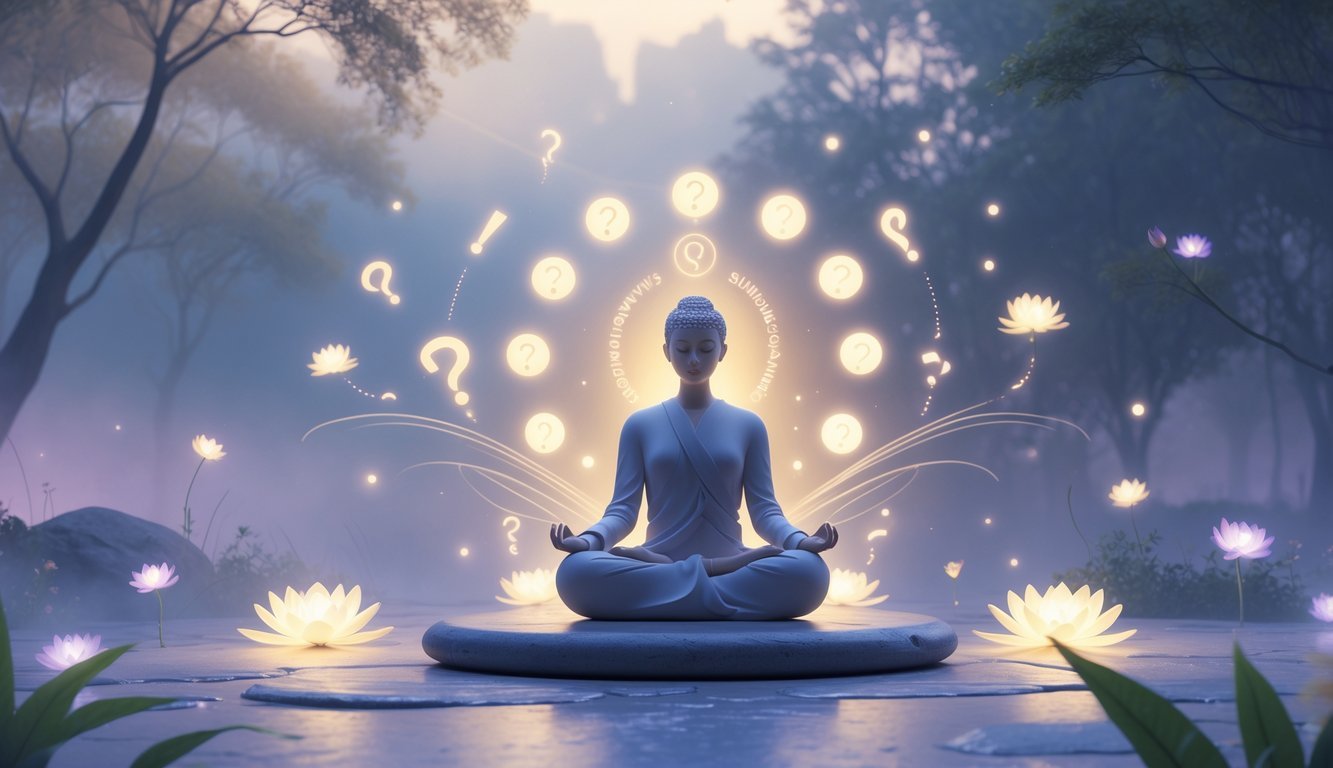PsychNewsDaily Publishers
100 Summit Drive
Burlington, MA, 01803
Telephone: (320) 349-2484
PsychNewsDaily Publishers
100 Summit Drive
Burlington, MA, 01803
Telephone: (320) 349-2484
Spirituality encompasses personal growth, connection to a higher purpose, and practices like meditation and mindfulness that enhance well-being, peace, and understanding of life's meaning.

Spirituality means something different to everyone, but at its heart, it’s the sense that life holds more than what we see or touch every day. People often search for meaning, connection, and understanding that goes beyond the physical world.
You might explore spirituality through your own path, whether or not you follow a religion. It can be a way to look at values, love, and forgiveness in your life.
You don’t need all the answers or a certain label to feel spiritual. Some folks just focus on how they relate to themselves, others, and the world.
A lot of people say spirituality helps them find peace, purpose, and a stronger sense of well-being.

Spirituality lets you connect with something bigger than yourself. People often look for meaning and purpose in life through it, and it can feel deeply personal.
How you see spirituality shapes how you find peace, believe in things, and feel like you belong.
Spirituality is about feeling connected to something greater than just your own life. Maybe that’s a higher power, nature, or just a deep sense of purpose.
It asks you to look at what gives your life meaning, beyond daily routines.
You don’t have to believe in a particular god to feel spiritual. It often brings feelings of peace, awe, or wonder.
Plenty of people say spirituality helps them stay calm or hopeful, even when things get tough.
Religion usually means organized beliefs and practices, often shared with a community, and it comes with certain rules and teachings. Spirituality feels more personal and flexible.
You can be spiritual without following any religion.
Being “spiritual but not religious” just means you look for personal meaning without formal worship or rituals. Religion often centers on faith in a god or gods, but spirituality might just be about feeling connected.
Finding meaning in life sits at the center of spirituality. When you connect with your purpose, life can suddenly feel clearer and more important.
Meaning might come from your values, goals, or relationships. Spirituality lets you explore why you exist and what really matters to you.
This search gives many folks hope and helps guide their choices every day.

Spirituality can help you find peace, build connections, and feel healthier overall. It often involves activities that focus your mind, open your heart, and encourage growth.
Many spiritual practices help you feel centered and calm. Meditation and mindfulness teach you to stay present and aware.
You could try prayer or reflection to connect with your beliefs or values.
Other practices include yoga, which mixes movement and breath, and keeping a gratitude journal to notice the good things each day. These activities can reduce stress and help you work through emotions like anxiety or sadness.
Pick one or mix a few practices to fit your life. The main thing is to show up for yourself regularly, even just a few minutes a day, if you want to see real changes.
Spirituality often grows through relationships and shared experiences. Being part of a community can give you a sense of belonging and support.
This might happen through religious groups, volunteering, or just hanging out with family and friends.
When you show compassion, forgiveness, and altruism in your relationships, you deepen your bonds. These acts of kindness and service not only help others—they boost your own happiness, too.
Building these connections can give you more hope and life satisfaction. It makes it easier to face tough times with resilience.
Spirituality supports your mental and physical health. Practices like meditation and prayer lower stress, ease anxiety and depression, and help you keep your emotional balance.
People who practice spiritual activities often show better well-being and resilience. You might bounce back from setbacks faster and feel more optimistic about the future.
Spiritual growth also encourages personal development by letting you explore your values and sense of purpose. This can even carry over into your workplace and education by boosting self-awareness and motivation.
When you focus on your spiritual side, you make life feel more meaningful and balanced.

You can explore spirituality through books, daily practices, or different belief systems. It connects with psychology and pops up in all sorts of places in your life.
Here are some answers to questions people often ask.
You could start with “The Power of Now” by Eckhart Tolle if you want to learn about living in the present. “The Seven Spiritual Laws of Success” by Deepak Chopra gives practical ideas for bringing spirituality into your life.
Another great one is “Man’s Search for Meaning” by Viktor Frankl. It blends spirituality with purpose.
These books offer simple, clear ways to deepen your spiritual understanding.
Spirituality focuses on personal growth and connecting with something bigger. Religion usually involves set beliefs, rituals, and organized groups.
You can be spiritual without joining a religion. Spirituality tends to be more flexible, while religion sticks to specific rules and traditions.
Maybe you feel spiritual when you walk in nature and just notice a sense of peace. Acts like kindness, meditation, or gratitude also fit into spiritual practice.
Some people find spirituality in art, music, or quiet reflection. It often shows up as a feeling of meaning or connection during daily moments.
Both look at how you understand yourself and find well-being. Psychology studies the mind, and spirituality explores purpose and inner peace.
Practices like mindfulness combine both. Meditation or positive thinking can support your mental health and spiritual growth at the same time.
You might try meditation, prayer, or mindfulness as a starting point. Some people explore energy healing, yoga, or just walking in nature.
Different cultures offer unique paths like Buddhism, Sufism, or indigenous traditions. Mix and match practices and see what feels right for your own growth.
“The wound is the place where the Light enters you” – Rumi.
“You do not need to leave your room. Remain sitting at your table and listen.” – Rumi.
“Spirituality is not adopting more beliefs but uncovering the best in you.” – Unknown.
Each of these quotes taps into something real about spirituality. They point to growth, inner peace, and that sense of connection many of us look for.